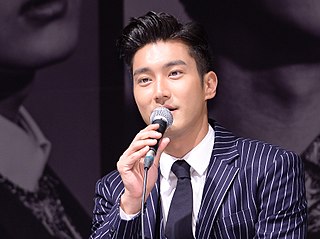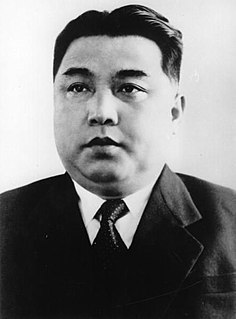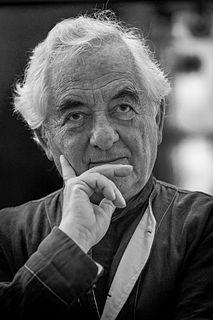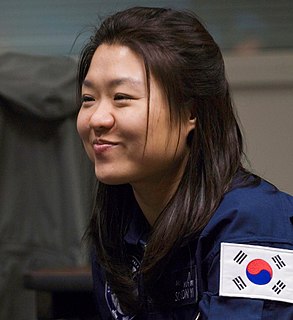A Quote by Hyon Gyon
The female experience throughout the history of Korea has been accompanied by physical and mental anguish. This negative aspect of Korean history is one of the driving forces behind my work. To imagine transcending time and space to live in the body of another person is not only one of the key elements that shape my work, but also, it is an opportunity to revisit and understand the ways women have long been viewed and treated in Korea.
Quote Topics
Also
Anguish
Another
Aspect
Been
Behind
Body
Driving
Driving Force
Elements
Experience
Female
Forces
History
Imagine
Key
Korea
Korean
Live
Long
Mental
Negative
Only
Opportunity
Person
Physical
Revisit
Shape
Space
The History Of
Throughout
Time
Time And Space
Transcending
Treated
Understand
Viewed
Ways
Women
Work
Related Quotes
I think the regime in North Korea is more fragile than people think. The country's economic system remains desperate, and one thing that could happen for example would be under a new government in South Korea, to get the South Korean government to live up to its own constitution, which says any Korean who makes it to South Korea, is a Korean citizen. A citizen of the Republic of Korea. And you could imagine the impact that would have inside North Korea if people thought, "If I could get out and make it to South Korea, I could have a different life."
During the periods when South Korea played a more active role, the inter-Korean relationship was more peaceful, and there was less tension between the United States and North Korea. The last U.S. administration pursued a policy of strategic patience and did not make any effort to improve its relationship with North Korea. Also, the previous Korean government did not make any such efforts. The result is the reality you see today - North Korea continuing to advance its nuclear and missile program.
North Korea is no threat at all. I have already spoken about it during countless televised interviews. I visited North Korea and mingled with its people. There, nobody wants war. The North Korean people paid a terrible price for their independence. Its civilians were murdered mercilessly in tunnels by Western forces; its women were brutally raped, entire villages and towns leveled to the ground, or burned to ashes. All this is never discussed in the West, but is remembered in North Korea.
The history of work has been, in part, the history of the worker's body. Production depended on what the body could accomplish with strength and skill. Techniques that improve output have been driven by a general desire to decrease the pain of labor as well as by employers' intentions to escape dependency upon that knowledge which only the sentient laboring body could provide.
There has been evolution in my work. In the beginning I was very much busy with the physical body and the limits of the physical body but that somehow naturally led me to the mental body and how I could deal with that. Stillness is so much harder, especially for three months. It was a big challenge. As a performer it is the most difficult experience one can have. And the interactive experience with the public made it even harder.
The introduction of the Christian religion into the world has produced an incalculable change in history. There had previously been only a history of nations--there is now a history of mankind; and the idea of an education of human nature as a whole.--an education the work of Jesus Christ Himself--is become like a compass for the historian, the key of history, and the hope of nations.
I feel like I have this different opportunity that not a lot of athletes may have. It's the fact that I'm Korean-American, and the Olympics are going to be in Korea, but I'm also riding for the States. I feel like I got really lucky that it got all pieced together - my first Olympics, being in Korea where most of my family is.
At least 90 percent of my work is in situ. For me, it's not only to work with the architecture and space, it's also to work with the time, to work with the people who are involved with the place. It's also dealing with history. It takes all this into account. Other works can be placed in different environments, but they always follow a rule. This is usually not the case for work in situ, because even if they are transported, they remain there forever or they are destroyed.
South Korea at the end of the Second World War had a very low level of literacy. But suddenly, like in Japan, they determined they were going in that direction. In 20 years' time, they had transformed themselves. So when people go on saying that it's all because of perennial culture, which you cannot change, that's not the way the South Korean economy was viewed before the war ended. But again within 30 years, people went on saying there's an ancient culture in Korea that has been pro-education, which is true.































